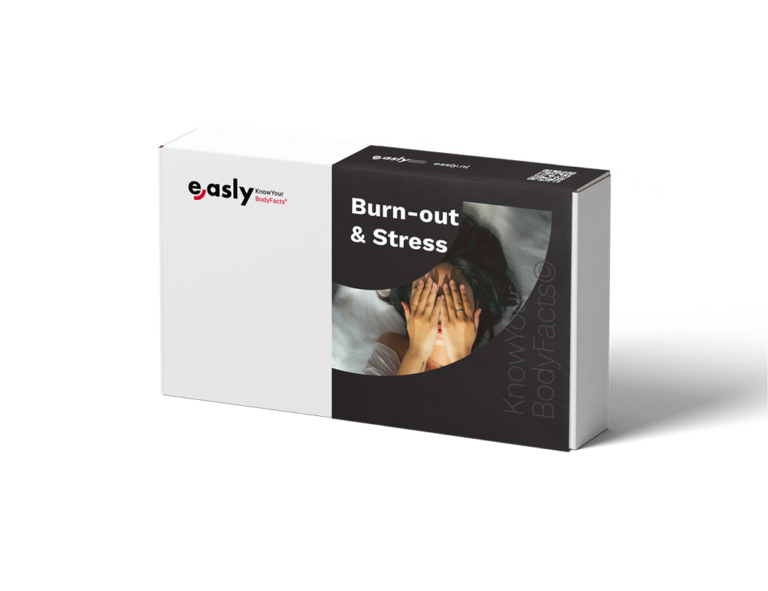We all face it sooner or later: stress. But what exactly is this like? What are common stress symptoms? How can you reduce stress? Are there any tools or exercises that can help? There is a lot to say about stress and we have tips too. So let’s kick off quickly!


What is stress?
As for the definition of stress, there is actually no scientific consensus. Some scientists see stress as the result of a negative external stimulus, which we perceive as threatening. But you can also see stress more broadly. Because even during positive events – a big gig with your band, your wedding day – you can experience stress. A little stress is healthy and can boost performance. But you shouldn’t get too much of it, for instance when you work too hard for long periods of time. So the most workable definition is that stress is the physical manifestation of any stimulus or condition that triggers tension.
Chronic stress is when stress persists over a long period of time. In this case, your body’s fight-or-flight response is repeatedly triggered. This can be due to persistent pressure or insecurity, for example. Sometimes the disrupted stress response is the result of a traumatic event. Such stress naturally has consequences: you can suffer all kinds of unpleasant physical and mental symptoms.
Stress symptoms and complaints
Stress is caused by the hormones cortisol, adrenaline and noradrenaline. In themselves, these hormones play a useful role when you need to perform quickly. However, if too much of it is produced or you get a surge of these hormones in your blood very often, you can develop unpleasant symptoms from this. These are common symptoms of stress:
- Diarrhoea
- Red spots
- Skin rash or itchy bumps
- Increased muscle tension, resulting in pain in the back, head or neck
- Palpitations
- Pain in the abdomen
- High blood pressure
- Feeling restless or agitated
- Poor sleep
- Worrying, or not being able to stop thinking
- Being tired, having little energy, feeling lifeless
- Stomach upset or nausea
- Incorrect breathing
- Quickly catching a flu or cold due to a less functioning immune system




Mental symptoms are there too, of course. When under high pressure for a while, you may fret more than usual, be forgetful or have trouble concentrating. Often, people sleep poorly when under stress and have little desire to eat. As for the latter: the opposite can also happen. When you are under stress for a long time, your body may think that hard times are ahead and you may actually start to overeat. An emergency supply of belly fat is then actually built up.
Cortisol Normal Values
If you suffer from stress for a long time, it can affect your daily life considerably. Chronic stress can cause headaches and trembling, in addition to the symptoms mentioned above. Moreover, an excess of the stress hormone cortisol can wreak havoc on your energy balance. This can make you quite tired. Too much cortisol, as mentioned above, can also cause belly fat to build up, providing a quick source of energy for your body. That in itself is annoying. But even more annoying is that it increases your chances of getting type 2 diabetes.

Prolonged stress can therefore wreak havoc on both your body and your mental well-being. No one wants a rash, weight gain, pain, muscle loss, fatigue or high blood pressure thanks to stress. Moreover, chronic stress increases the risk of cardiovascular disease. All the more reason to look for ways to tackle stress at its roots.
Related tests



How can you reduce stress?
How can you reduce stress and stress symptoms? Let’s start at the beginning. Try to find out what it is that keeps you awake. What is the source of tension in your life? Write down what makes you feel good and what makes you feel bad. Or talk to someone close to you about your problems. Can you remove the source of your stress: excellent. But sometimes, of course, you can’t. Then make sure you tackle stress in other ways:
- Try to demarcate the mulling. For example, give yourself a quota of half an hour a day in which you are allowed to think about negative things. Keep to this consciously.
- Find stress-relieving situations. Peace and nature. Silence.
- Petting a pet also makes you calmer, according to scientists.
- Doing relaxation exercises can also help. Some people benefit from yoga or meditation, which focuses heavily on the now rather than other worries you are struggling with.
- Make sure you get enough sleep. So: to bed on time and back up on time. Ensure regularity.
- Playing with or squeezing a stress ball can also calm you down.
- Take good care of yourself. Eat healthy and exercise. Because a healthy and fit body reduces stress. Moreover, this is good for your immune system.
- Seek professional help if you feel the problems are growing over your head.



Daily work is often a source of stress. You can tell that things are not going well by, for example, loss of interest in your work, poor concentration, social withdrawal, headaches or loss of libido. What can you do about it? It is important not to put too much pressure on yourself; do your best, but do not expect the impossible from yourself. Moreover, focus only on things that are in your control. You often cannot influence the people around you anyway. If you have a problem in the workplace, it is important to discuss it with colleagues. Dare to say ‘no’ when your workload threatens to get out of hand and be conscious about interruptions to your work. After all, those breaks get in the way of your deadlines.
Of course, the above tips do not replace the advice of a qualified doctor or psychologist. If there are serious health or mental complaints, for example as a result of trauma, it is still advisable to speak to your GP about your problems. He or she can then determine with you the best next steps.

To measure is to know
It is clear: cortisol plays an important role in all kinds of bodily processes that can affect your mood quite a bit. Moreover, the long-term effects of high cortisol levels don’t lie. All the more important, then, to keep a close eye on your cortisol. Easly has developed a test that allows you to measure your cortisol. Simply, from the comfort of your own home. The home test contains everything you need. After you have sent the sample in the return envelope to our laboratory, you can view the result online within a few days.
Sources:
- What is stress And take a stress test here – https://www.cz.nl/stress/wat-is-stres
- Managing stress better – https://www.thuisarts.nl/stress/ik-wil-beter-omgaan-met-stres







